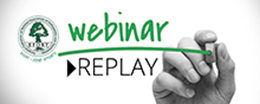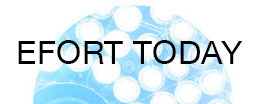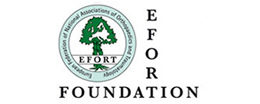EFORT Instructional Course Geneva 2012 – 12-13 October
Five in One: Operating Hallux Valgus Deformities
Geneva – What is the right method for comparing five operation procedures in one day? What should we be aware of before selecting a specific technique? When should a surgeon delay an operation in case of ankle arthritis? PD Dr. Mathieu Assal, Co-chairman of the EFORT Instructional Course ‘Hallux Valgus and Ankle Arthritis’ to be held in Geneva in October, gives us some insights.
Dr. Assal, tell us why should attendants be looking forward to participating in the EFORT Hallux Valgus & Ankle Arthritis Instructional Course in October in Geneva?
We are going to offer quite an interesting program concerning the management of hallux valgus deformities and state of the art treatment options of ankle arthritis. We will have five live surgeries done by recognized experts, who will share their surgical skills with the audience. There will be three workshops, so participants will have the opportunity to have some hands-on practice.
What exactly are the experts going to show at the hallux valgus live surgeries?
PD Dr. Xavier Crevoisier (Chairman), will be doing a Chevron osteotomy, Dr. Marc Augoyard will do a Scarf osteotomy and I will present the Lapidus arthrodesis. Dr. Pascal Rippstein will perform a MTP1 arthrodesis, and finally we will move on to the percutaneous surgery for hallux valgus, which will be demonstrated by Dr. Eduardo Rabat. All surgeries will be transmitted to the conference room, where attendants will have the opportunity to ask questions.
The percutaneous technique seems to be quite trendy at the moment. Is it really that good?
There is a lot of enthusiasm surrounding percutaneous surgery. However, we know that a number of complications come with it. Surgeons need to be aware of these complications and select the right patients. Dr. Jean-Luc Besse and Dr. Eduardo Rabat will tell us very honestly whether it is really safe or not, and what type of patient should benefit from such procedures.
The program has a quite strict structure. Each treatment technique starts with the specific indication, then moves to the live surgery and ends with ‘the true story – my problems’. Why?
We are comparing five different techniques with five different experts, so we want to have the same structure for each section. It is important for us that the experts do not give us a too enthusiastic personal overview. They are asked to talk about their technical problems, their patients with difficult outcomes, their challenges and how they solve them – the true story in fact. Each technique has its advantages and disadvantages. It is necessary to talk about the problems, too.
The course is going to end on a Saturday at 12.30. There will be enough time left for participants to go out and enjoy the city. Can you give me any recommendation for Geneva? What should people go and see?
Geneva really is an attractive city, with many cultural highlights. I strongly recommend the beautiful old town. You can do great shopping also. People who enjoy mountains should go and see the Mont-Blanc which is only 40 minutes away from Geneva towards Chamonix. Several ski resorts in the area will already be open. And then there is of course the lake of Geneva. It’s very relaxing to stroll around it on the promenade and sit in some nice café.


